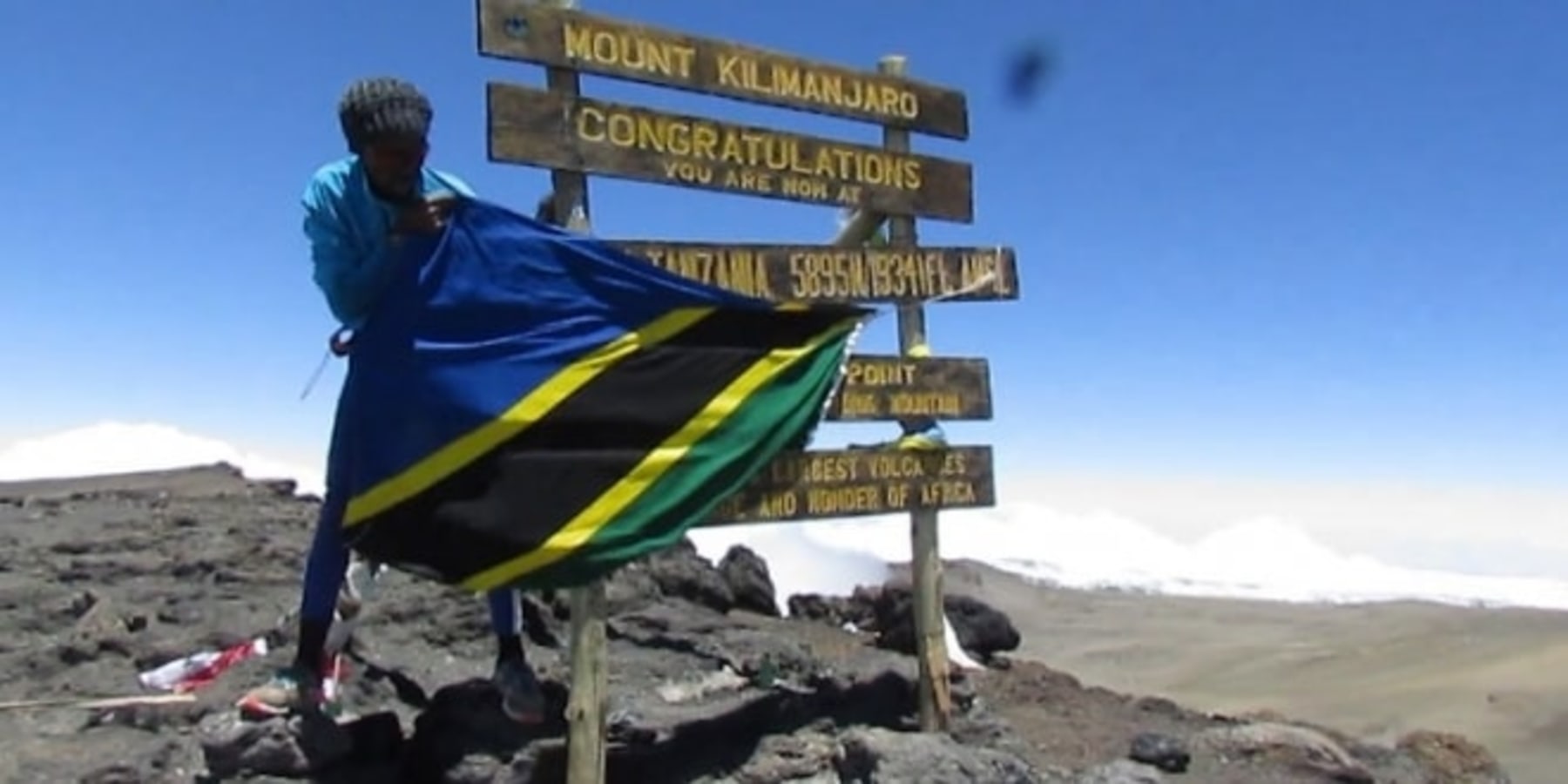
Gaudence Lekule has become the first African to climb up to the top of Mount Kilimanjaro and down to level ground again on foot in less than nine hours.
The 31-year old Lekule, who hails from Kiraracha village in Marangu area, Moshi Rural District, spent a total of 8 hours and 36 minutes scaling and descending from the mountain’s highest peak Uhuru, which is located 5,895 metres above sea level.
He beat the old African record of 9 hours 20 minutes set by fellow Tanzanian Simon Mtui in 2006.
The current world record for scaling the continent’s highest mountain is held by Karl Egloff from Ecuador, who in 2014 did the arduous, to-and-fro climb in just 6 hours 53 minutes.
Egloff’s time beat the previous record of 7 hours 20 minutes set by Kilians Jornet of Spain in 2010.
Speaking to reporters here on Wednesday after his return from the ‘Roof of Africa’, Lekule proposed that the government starts marketing the Mount Kilimanjaroclimb as a new sport.
He said sports such as mountain climbing and athletics could be more effectively used to advertise Tanzanian tourism attractions abroad and subsequently earn the nation and its people more income through tourism.
Lekule also said he is in preparation to set similar new records in climbing other famously-high mountains within the country and outside.
I would like to promote Tanzania internationally and I have received many invitations to compete in mountain runs around the world,” he stated.
He cited some of the major challenges he faces in training as poor weather conditions, and lack of finances to buy basics like proper diet food and proper clothing for mountain hikes exceeding 3,500 above sea level.
Kilimanjaro regional authorities recently earmarked Africa’s tallest indigenous tree for inclusion in the list of Tanzania’s must-visit tourist attractions.
The colossus, measuring a whopping 81.5 metres, sits on one of the foothills of Mount Kilimanjaro.
The approximately 600-year old Entandrophragma excelsum species has matched Africa’s previous tree-height record established by another specimen in Limpopo, South Africa.
Kilimanjaro regional commissioner Said Mecky Sadiki has said he will lead a drive to pave the way for the tree’s pending launch as a national treasure.
Officials say that if well-marketed internationally, the tree could very well turn into a cash cow for the country, increasing tourism sector earnings multi-fold.
Kilimanjaro National Park (KINAPA) chief warden Bertita Loibooki has pledged KINAPA’s commitment to conserving the tree by any means possible.
It's a big boost to have this tree in our park and we are going to use it as one of our tools to promote Mount Kilimanjaro, get more tourists and revenue,” Loibooki said.

